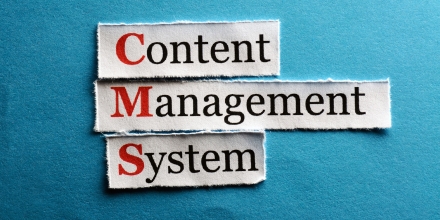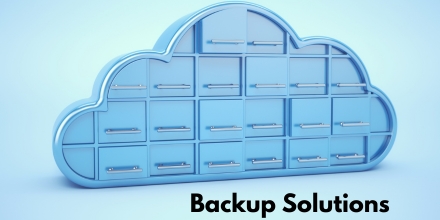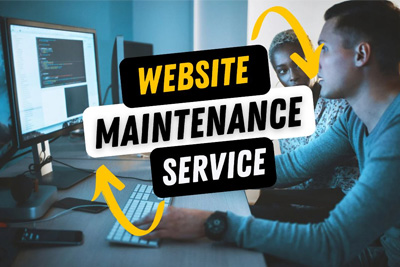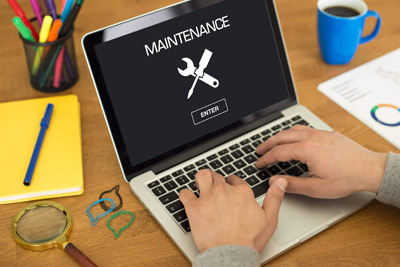Website Maintenance Services in Bangalore
Common Questions:- Website Maintenance Service, Website repair, annual maintenance contract (AMC), webmaster support, technical website assistance, broken website, hacked website, content management, website moderation, virus removal, web support, third-party script integration, CSS and HTML correction, CMS updates, expert website guidance, website AMC proposal, website AMC charges, website AMC meaning, website AMC terms and conditions, website AMC contract formats, website maintenance packages, website maintenance charges, AMC website support, annual website maintenance costs, responsive website repair, website security enhancements, website content updates, website malware removal, website backup services…
Website technical support, website development and upgrades, website AMC pricing, website maintenance contracts, website CMS updates, website technical assistance, website design improvements, website optimization services, website support in India, website AMC services in Mumbai, website AMC services in Bangalore, website AMC services in Ahmedabad, website AMC agreement formats, website AMC benefits, website maintenance expertise, reliable website support…
Why Website Maintenance and Optimization Matter
Outdated Content
Fresh and relevant content is the lifeblood of your website. Outdated content can lead to reduced engagement and SEO penalties. Keeping your content up-to-date is vital to maintain your site’s authority and relevance.
Broken Links and 404 Errors
Broken links are like dead-end streets on your website. When visitors encounter them, it’s frustrating, and it can negatively impact your site’s credibility. 404 errors, which occur when a page is not found, can result from broken links. Regularly checking for broken links and fixing them is essential for a seamless user experience and SEO benefits, you can use this plugin also eg: 404 errors plugin
Slow Page Loading Times
In today’s fast-paced world, people expect websites to load quickly. Slow-loading pages can drive visitors away and harm your search engine rankings. Optimizing your website’s performance is crucial for user satisfaction and SEO.
Mobile Responsiveness
With the increasing use of mobile devices, your website must be responsive and mobile-friendly. A poor mobile experience can lead to higher bounce rates and lower rankings in mobile search results.
Security Vulnerabilities
Cybersecurity threats are on the rise, and websites are often prime targets. Security vulnerabilities can lead to data breaches, malware infections, and damage to your reputation. Regular security assessments and updates are essential to safeguard your website and user data.
Backup and Data Loss Prevention
Imagine losing all your website data in an instant. Regular backups and data loss prevention measures are your safety net against such disasters. Without them, you risk losing valuable content and customer information.
Creating a Website Maintenance Plan
To effectively address these key aspects of website maintenance and optimization, you need a well-structured plan. Here’s a step-by-step guide to help you create a comprehensive website maintenance plan:
Step 1: Define Your Goals and Objectives
Start by identifying what you want to achieve with your website. Your goals may include increasing traffic, improving user experience, enhancing security, or boosting sales.
Step 2: Inventory Your Website
Create a detailed inventory of your website, including all pages, content types, plugins, and extensions. This will serve as a reference point for your maintenance tasks.
Step 3: Prioritize Tasks
Once you have an inventory, prioritize maintenance tasks based on their importance and impact on your goals. Focus on critical issues first.
Step 4: Set a Maintenance Schedule
Determine how often you’ll perform maintenance tasks. Some tasks, like security updates, may require more frequent attention than others.
Step 5: Assign Responsibilities
Identify the team members or external partners responsible for each maintenance task. Clear roles and responsibilities are essential for accountability.
Step 6: Budget for Maintenance
Allocate a budget for website maintenance. Consider costs for tools, services, and personnel required to execute your plan effectively.
Step 7: Choose Tools and Software
Select the appropriate tools and software to aid in website maintenance and monitoring. There are many website maintenance tools available, such as content management systems, SEO plugins, and security scanners.
Step 8: Develop Standard Operating Procedures (SOPs)
Document step-by-step procedures for each maintenance task to ensure consistency and accuracy.
Step 9: Test and Review
Before implementing your maintenance plan, thoroughly test it to identify any gaps or issues. Review the plan regularly to adapt to changing needs.
Step 10: Disaster Recovery and Incident Response
Create a disaster recovery plan to handle unforeseen issues like security breaches or data loss. Define clear incident response procedures to minimize damage in case of an incident.
Website Maintenance Best Practices
Now that you have a plan in place, let’s delve into some best practices for effective website maintenance and optimization:
- Regularly Backup Your Website
- Stay Informed About Industry Regulations
- Keep Software and Plugins Up-to-Date
- Conduct Security Assessments
- Monitor Website Uptime and Performance
- Optimize Website Content
- Test for Accessibility
- Perform Browser Compatibility Testing
- Monitor User Experience
- Use Website Analytics
- Continuously Improve Performance
Website Maintenance Tools and Software
Effective website maintenance often requires the use of specialized tools and software. Here are some essential types of tools to consider:

Content Management Systems (CMS)

SEO Plugins

Security Scanners

Backup Solutions

Performance Monitoring

Accessibility Testing

Email Marketing Platforms

Social Media Management Tools
- Web Development and Design Services
Professional web developers can handle updates, design improvements, and custom development.
- SEO Services
SEO experts can help with keyword research, on-page optimization, and improving search engine rankings.
- Security Services
Hiring a cybersecurity firm can ensure your website is protected against threats and vulnerabilities.
- Hosting Services
Choose a reliable hosting provider that offers managed services and takes care of server maintenance.
- Content Creation and Optimization Services
Content writers and editors can assist in creating and optimizing website content.

Website Maintenance Budget and Frequency

The budget and frequency of website maintenance will vary based on the complexity and goals of your website. However, here are some general guidelines:
-
- Allocate a budget for monthly or quarterly maintenance tasks.
- Allocate additional budget for one-time activities like redesigns or major updates.
- The frequency of maintenance tasks depends on their urgency. For example, security updates should be applied promptly, while content updates can follow a schedule.
- Consider your website’s growth and adapt the budget and frequency accordingly.
Website Maintenance Risks and Challenges
Downtime
Performing updates and maintenance can sometimes lead to temporary downtime. Plan maintenance during off-peak hours to minimize disruption.
Data Loss
Mistakes during updates or security breaches can result in data loss. Regular backups are your safety net against this risk.
Compatibility Issues
Updates to software, plugins, or themes can sometimes lead to compatibility issues. Testing before implementation can help mitigate this risk.
Security Breaches
Despite your best efforts, security breaches can still occur. Having a robust security plan in place is essential to respond effectively.
Resource Constraints
Small businesses or individuals may face resource constraints, making it challenging to allocate budget and personnel for website maintenance.
The Vital Guide to Website Maintenance: Keeping Your Online Presence Sharp
Your website is crucial in the digital landscape, bridging your business with potential customers. To fully utilize its power, ongoing attention and optimization are vital. Neglect can lead to issues like broken links, security vulnerabilities, and poor user experiences.
Website maintenance is like tending a garden; it needs constant care. Neglect can lead to problems like broken links, outdated content, slow loading times, and security vulnerabilities. Regular security assessments are essential, and mobile responsiveness is a must.
Having a safety net (backup and data protection) is crucial to protect your content and customer information. Staying visible through SEO and content optimization is like navigating changing tides, while keeping your website nimble and responsive (image optimization).

FAQS
Website maintenance involves regular tasks and updates to ensure a website remains secure, up-to-date, and functional. It’s important to keep a website running smoothly and to provide a positive user experience.
The frequency of content updates depends on your goals and industry. However, it’s generally recommended to update content regularly, whether it’s daily, weekly, or monthly, to keep it fresh and relevant.
Common security risks include hacking, malware, and data breaches. To protect your site, use strong passwords, keep software and plugins updated, and consider employing a web application firewall.
To improve loading speed, optimize images, use content delivery networks (CDNs), minimize HTTP requests, and leverage browser caching. Regularly checking for broken links can also help.
An SSL certificate encrypts data transmitted between your website and visitors, enhancing security and trust. It’s crucial for protecting sensitive information and improving SEO.
Ensure your website is responsive, meaning it adapts to different screen sizes and devices. Test your site on various mobile devices and use mobile-friendly design principles.
A website maintenance checklist should cover tasks like content updates, security checks, backup schedules, performance monitoring, and SEO optimization.
To comply with privacy regulations, update your privacy policy, provide opt-in and opt-out mechanisms, and secure user data. Consulting with legal experts is advisable.
UX testing helps identify issues that may deter users from your website. Conduct it by observing user interactions, collecting feedback, and using UX testing tools.
Website maintenance services or professionals can save you time and provide expertise in areas like security, SEO, and design. They ensure your site is well-maintained and up-to-date, allowing you to focus on your core business activities.
- Digital Marketing Services
- Brand Consultancy
- Website Design Services
- Web Hosting & Domain Registration in India
- Dynamic Website Development
- Website Redesign Service
- Website Maintenance Service
- AMC & IT Support
- Ecommerce Website Design Services
- SSL Certificate (HTTPS)
- Content Writing
- Complete Email Service
- G Suite Services
- Microsoft Office 365 Email Services
- Zoho Email Services
- ERP Bangalore
- Custom Web Application Development
- Mobile App Development and Services
- Android Application Development
- iOS Application Development
- Windows Application Development







